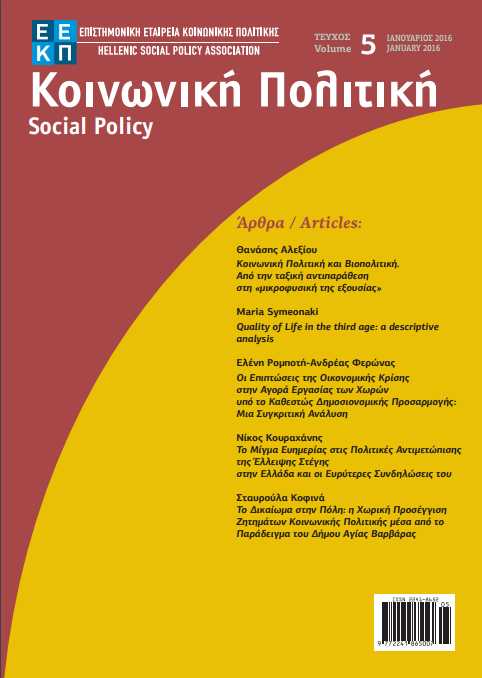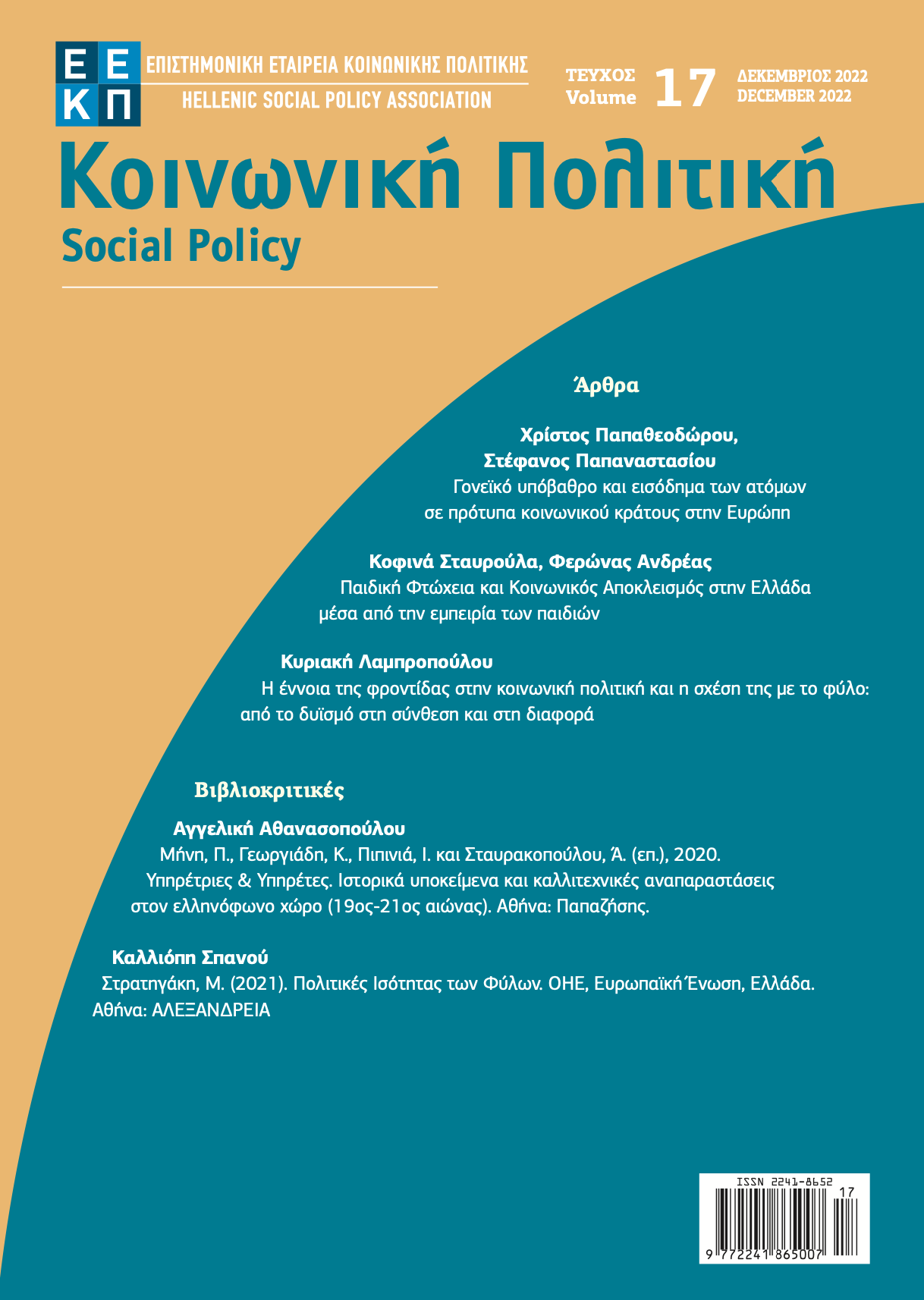Το Δικαίωμα στην Πόλη: η Χωρική Προσέγγιση Ζητημάτων Κοινωνικής Πολιτικής μέσα από το Παράδειγμα του Δήμου Αγίας Βαρβάρας

Abstract
Space is a neglected dimension in social policy, although much of the production, distribution and management of urban resources - health, education, employment – consist its main action field. However, changes taking place in the traditional welfare state, highlights the spatial dimension mainly on policies to tackle social exclusion. In this context, habitation in space is associated with the access to or exclusion from urban resources, opportunities, privileges and rights and highlighting social inequalities and divisions in urban organization, through spatial concentrations of poverty and wealth. `This research studies the effect of the spatial factor in the production of divisions and inequality through the example of the city of Agia Varvara. Particularly studies the effects of habitation on the quality of life, access to urban resources and on the political and social participation in a city enclave of poverty and unemployment, which over time experiencing the territorial stigmatization due to its multicultural composition, as it incorporates one of the largest Roma communities in Greece
Article Details
- How to Cite
-
Κοφινά Σ. (2017). Το Δικαίωμα στην Πόλη: η Χωρική Προσέγγιση Ζητημάτων Κοινωνικής Πολιτικής μέσα από το Παράδειγμα του Δήμου Αγίας Βαρβάρας. Social Policy, 5, 80–100. https://doi.org/10.12681/sp.10602
- Issue
- Vol. 5 (2015)
- Section
- Articles

This work is licensed under a Creative Commons Attribution 4.0 International License.
Authors who publish with this journal agree to the following terms:
Authors retain copyright and grant the journal right of first publication with the work simultaneously licensed under a Creative Commons Attribution Non-Commercial License that allows others to share the work with an acknowledgement of the work's authorship and initial publication in this journal.
Authors are able to enter into separate, additional contractual arrangements for the non-exclusive distribution of the journal's published version of the work (e.g. post it to an institutional repository or publish it in a book), with an acknowledgement of its initial publication in this journal.
Authors are permitted and encouraged to post their work online (preferably in institutional repositories or on their website) prior to and during the submission process, as it can lead to productive exchanges, as well as earlier and greater citation of published work.



